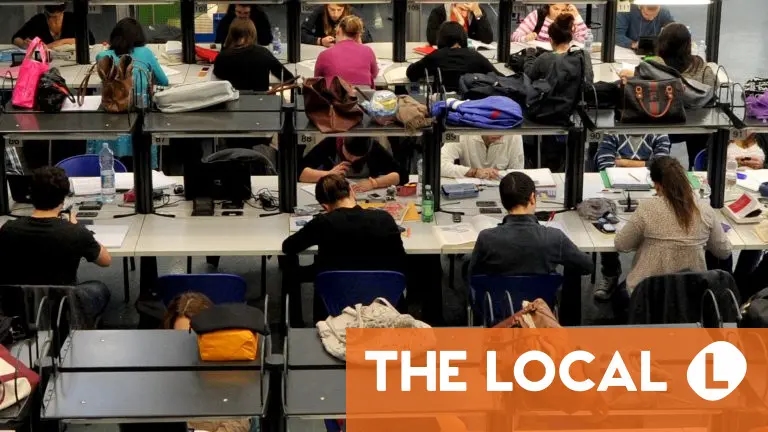Lessons from the student who earned a perfect score on the Saber 11 tests: 'The exam doesn't define who you are'
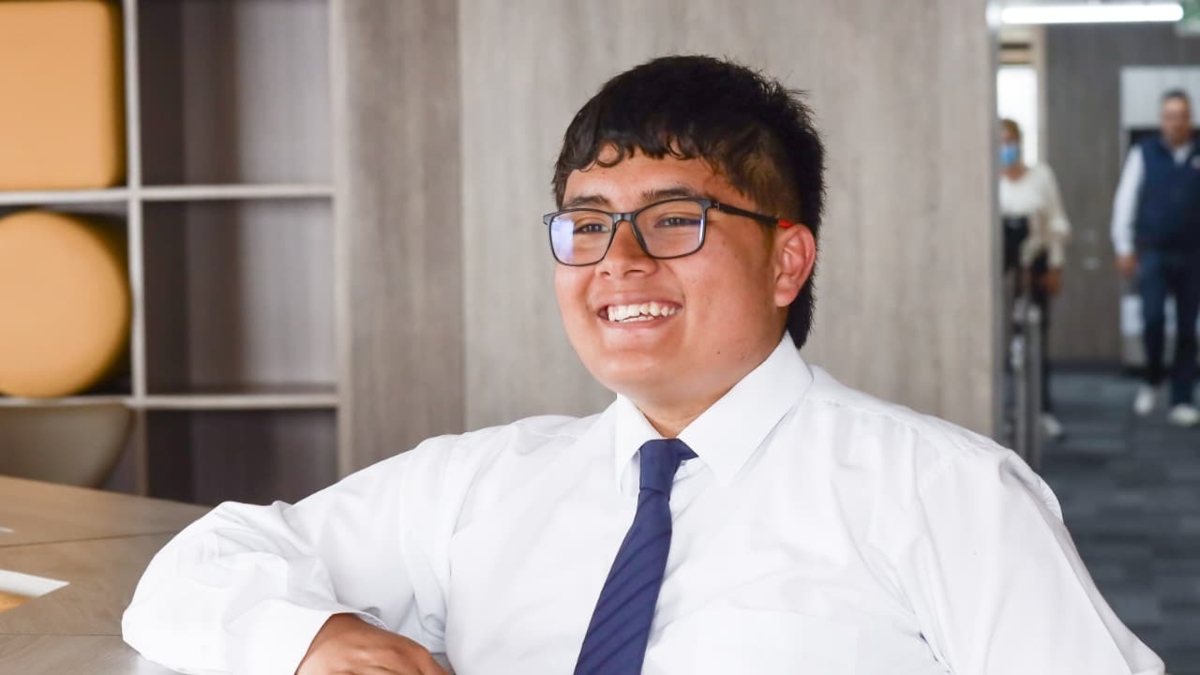
Samuel Huertas Moreno, a native of Fosca (Cundinamarca), was one of the students who earned a perfect score of 500 out of 500 on the state tests. He dreams of studying Pure Physics and was awarded a 100 percent scholarship to study at the Universidad de los Andes.
Determination, a study group with friends, and a pre-ICFES test. Samuel Huertas Moreno based his success on these three factors in the recent ICFES Saber 11 Tests (Schedule A): he earned 500 out of 500, a perfect score he shared with three other young people in the country, although, unlike him, they had already taken the exam before.
Huertas is 16 years old and is originally from Fosca, a rural municipality in Cundinamarca located about four hours by car from Bogotá. He attends the María Medina School and became the first student in the department to achieve a perfect score on the Saber 11 tests.
Regarding his success, the young man sums it up this way: “I call it three layers of preparation,” Samuel said in an interview with EL TIEMPO. “The talent pool, which I always mention; the Preicfes Orión, which supported me from the beginning; and personal study, with a group of friends called the 500 Maniacs. We were kids from all over the country who wanted to get the highest score possible .”
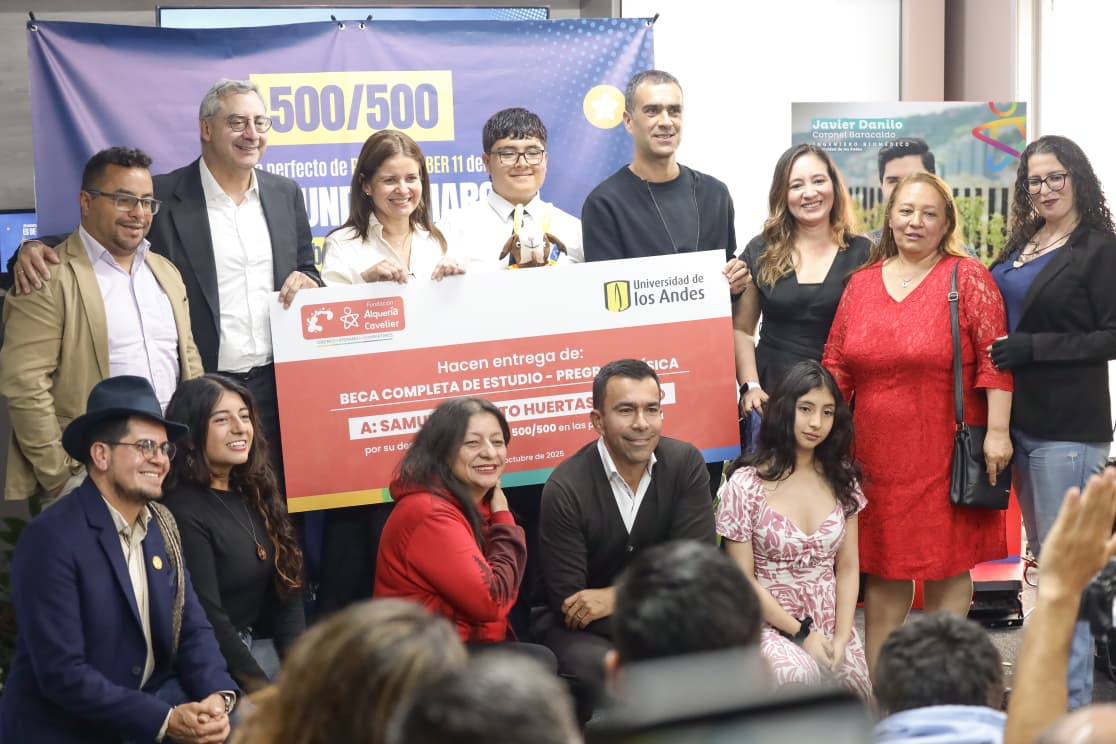
Awarding of a 100% scholarship to study at the University of the Andes. Photo: Nestor Gómez
The Colombian Institute for the Evaluation of Education (ICFES) published the results on October 10, in which nearly 600,000 students participated on August 10. This exam evaluates five areas of knowledge: Critical Reading, Mathematics, Social and Citizenship Studies, Natural Sciences, and English, each with a score from 0 to 100 points.
In recent years, the national average overall score has ranged between 250 and 260 points. Exceeding this figure means being above the national average. Achieving a score above 400 points is considered exceptional and highly competitive for admission to various universities, while a score above 300 is already positively valued depending on the academic program.
EL TIEMPO spoke with Huertas in Bogotá during a recognition event led by the Cundinamarca Governor's Office, in which the Alquería Foundation awarded him a 100 percent scholarship to study at the University of the Andes, due to his success on the state exams.
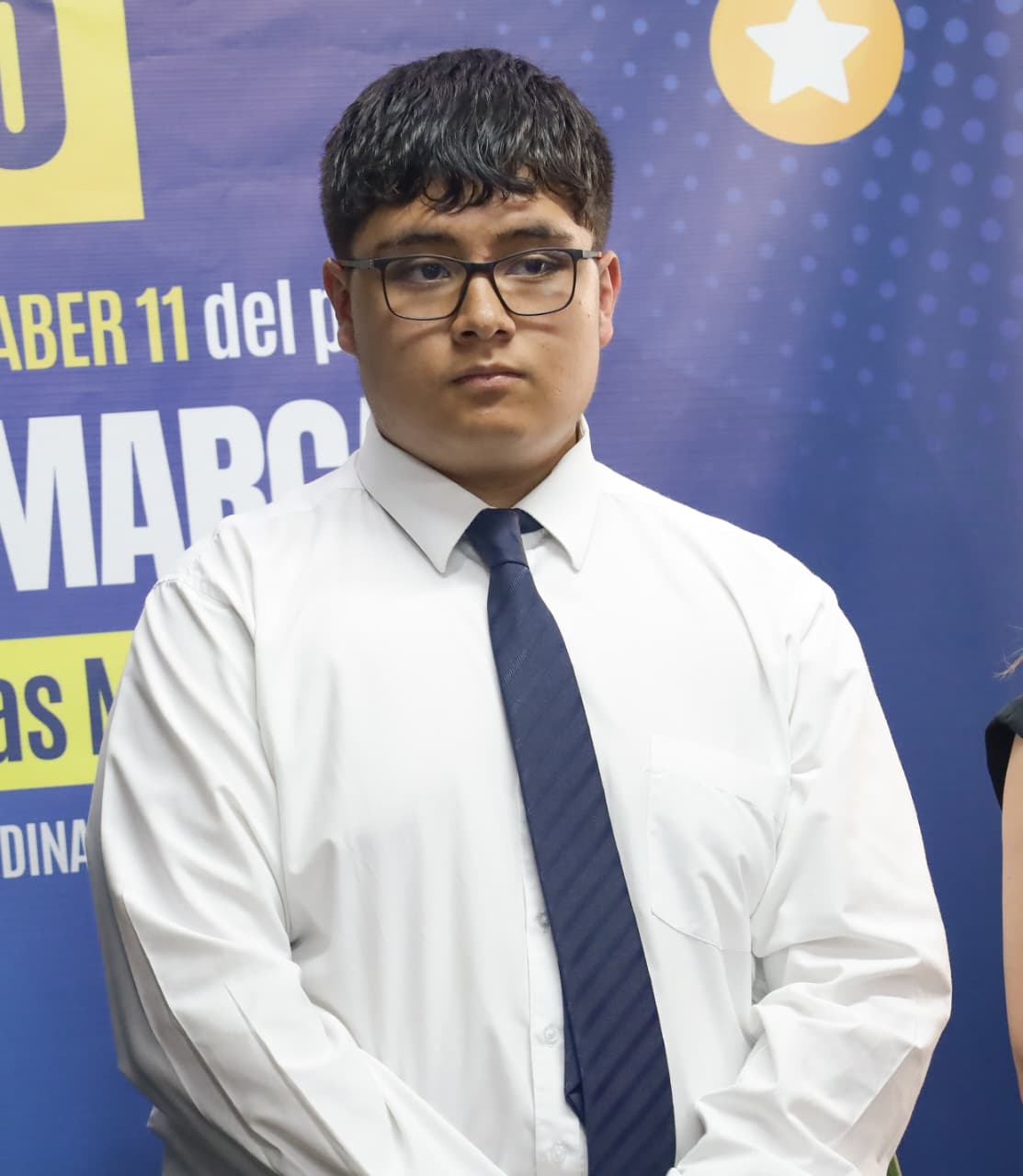
Samuel Huertas during the ceremony, which took place on the 32nd floor of the Colpatria Tower. Photo: Nestor Gómez
'I am a resilient person'
The young man describes his town as a place where corn and potatoes are the daily harvest, livestock supports families, and poultry farming plays a key role in the local economy. It was in this environment that Samuel's discipline was forged. He defines himself as "resilient and capable," but adds a word that, for him, sums up his journey and his approach to life: effort.
Adela Moreno, his mother, accompanied him to the award ceremony. “The teachers always told me he had talent. He learned faster: he'd finish one book and already want to read the next one, while the other children hadn't even started yet,” Moreno recalled in an interview with EL TIEMPO.
“Just his company was enough,” his mother recalls during the days before the tests. “He didn't like to be alone at his desk. So, while he reviewed his notes, I would play solitaire on the other computer until he finished,” his mother says.
During those long nights, when his two cats, Quesito and Toothless, also kept him company, Samuel applied very particular study methods: the Pomodoro and the Feynman.
The Pomodoro Method consists of dividing study time into 25-minute intervals, called "pomodoros," followed by short five-minute breaks. After four cycles, a longer break is taken. Although Samuel maintained the logic of this technique, his version was different:
“I would study for 50 minutes, then take a 10-minute break. I would study for 50 minutes again, then take a 20-minute break, and so on,” Samuel explains.
The Feynman Method is a technique that seeks to explain a concept in a simple way . It has four basic steps: choose a topic and study it; explain it as if you were teaching someone else, using clear language; identify confusing parts and review them until you understand them; and, finally, simplify and create analogies to fully internalize the idea.
This approach to learning forces students to think, organize, and communicate knowledge, rather than simply memorizing. In fact, Samuel argues that the key to learning goes beyond memory , and that if schools truly strive for quality, they must start there.
The teachers always told me he was talented. He learned faster: he'd finish one book and already want to read the next one, while the other kids hadn't even started yet.
The worst part was the day of the test. Samuel felt like he was going into a meltdown, and panic spread like sweat on his palms. "I can't let my emotions get the better of me, I can't let my emotions get the better of me. I have to finish the booklet," he repeated to himself, even though his mind was already busy with the math questions he had to answer on the booklet.
Even during the lunch break they give you during the exam—when your mind normally clears and rests—he opened his notes and sat down to study English, convinced that it was his weak point.
He left the exam feeling depressed, feeling like something had gone wrong. When anxiety began to settle like a stone—or rather, a lump of cement—in the pit of his stomach, he sought refuge in his friends and the people he loved most. As throughout his entire process, he found support and calm in them again.
In fact, the young man traveled constantly to Bogotá to prepare for the Saber Pro tests, and throughout the process, he had the support of his aunt, who provided him with accommodation, and his parents, who supported him financially and emotionally.
"If he needs transportation and there's no money, it doesn't matter: even if I have to borrow groceries from the corner store, I'll get him the fare," said Adela, his mother.
Until the day of the results arrived. Samuel, still not believing what he was seeing on the screen, called his parents and told them, "I think... ugh! I think I got 500." Between the tears that came and the hugs that came, it was dawn. "We talked a lot about what I hope for and what's coming in the future," he recalled.
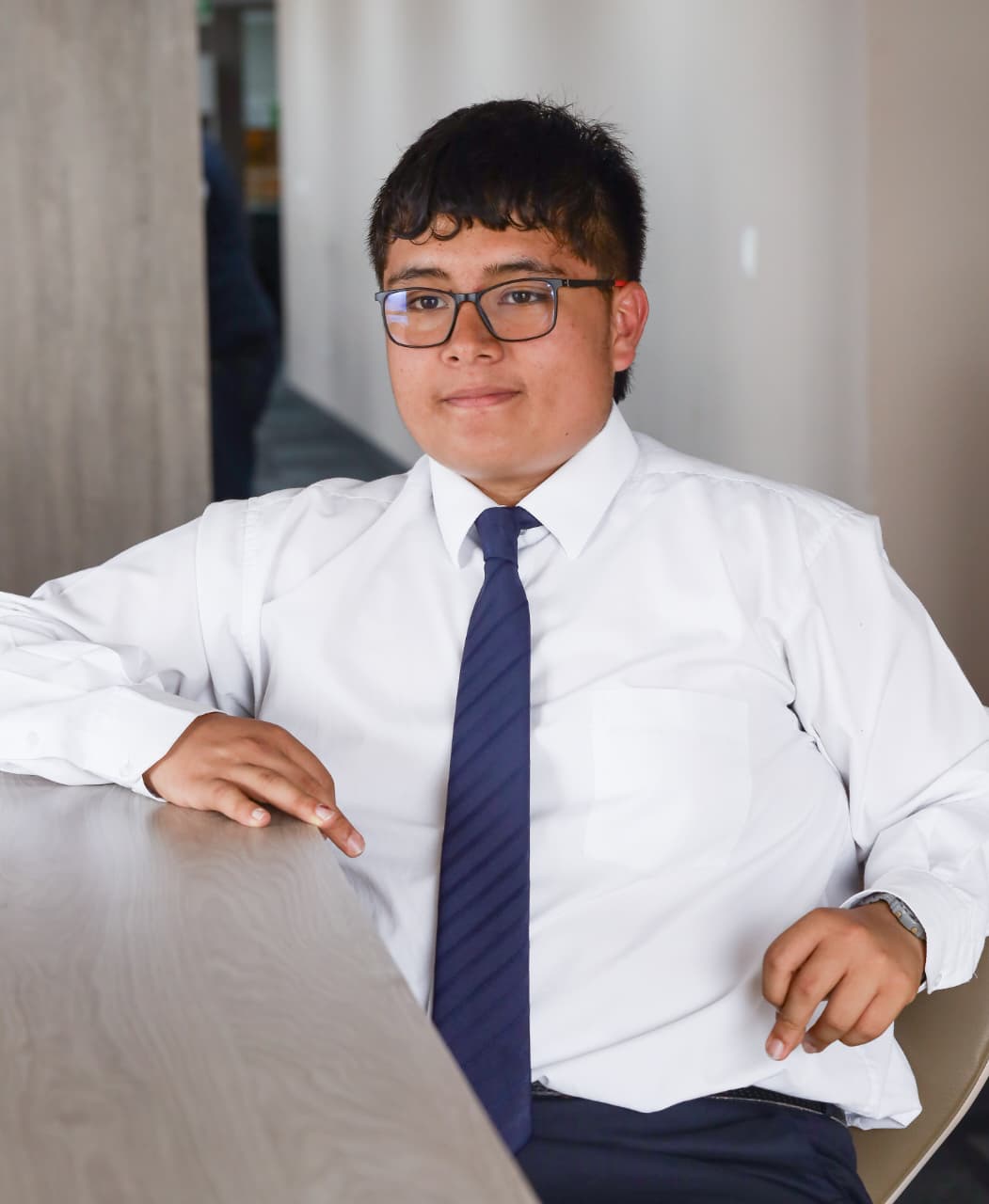
The Cundinamarca Governor's Office will invest in infrastructure and technology at the María Medina School. Photo: Nestor Gómez
From then on, it's been all congratulations and praise. "I'm going to get your score tattooed!" said his best friend, who never misses a single post featuring Samuel. "I'm going to promote you everywhere... my best friend was the best in the country!"
During his recognition, he was asked if he wanted to be mayor or enter politics. Although there are many things that frustrate him and he would like to change, Samuel dreams of studying physics and becoming a university professor.
“I was torn between Systems Engineering, Mathematics, or Physics. For me, engineering is about problem-solving, about application. The mathematician demonstrates, but without applying it. Physicists, on the other hand, use the mathematician's demonstrations and predict what the engineer will then put into practice. It's all there,” he explained.
He fell in love with science, and his favorite book is A Brief History of Time by Stephen Hawking. He also deeply admires Carl Gauss, the mathematician who transformed the way we understand the world through numbers.
“ I love teaching. It's one of the coolest things there is . And I see myself doing that: whether it's tutoring, at universities, or even at my own school. It doesn't matter where, but I see myself teaching,” she says.
She dreams of pursuing a career in academia and research: pursuing a master's degree, a doctorate, a postdoctoral degree, and one day working in the laboratories of the Universidad de los Andes or any university that allows her to explore the universe through science.
“The test doesn't define who you are. A score isn't going to tell you if you're a good or bad person, nor is it going to tell you if you're capable or incapable . It's a measure of academic performance, not intelligence, because there are many ways to be intelligent,” Samuel reflected.
Carol Tatiana Gomez Suraez - School of Multimedia Journalism
eltiempo


